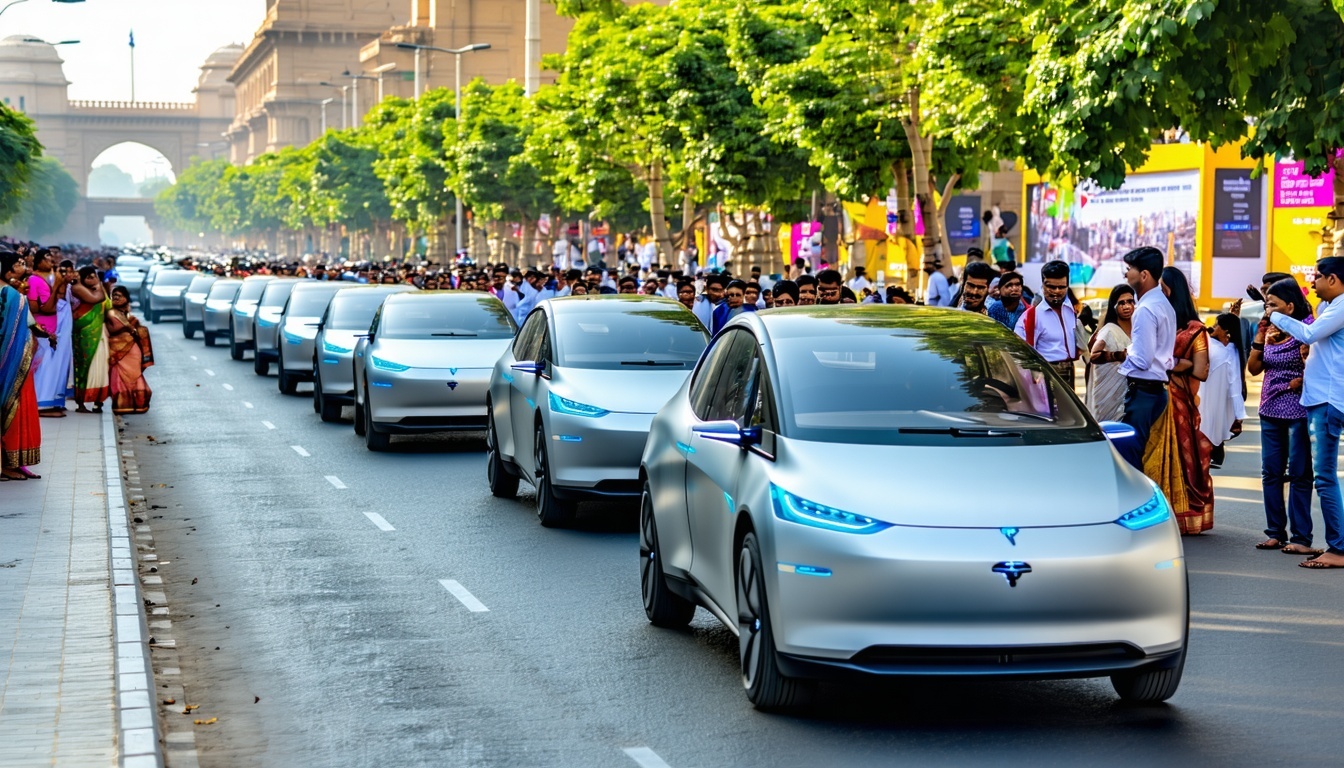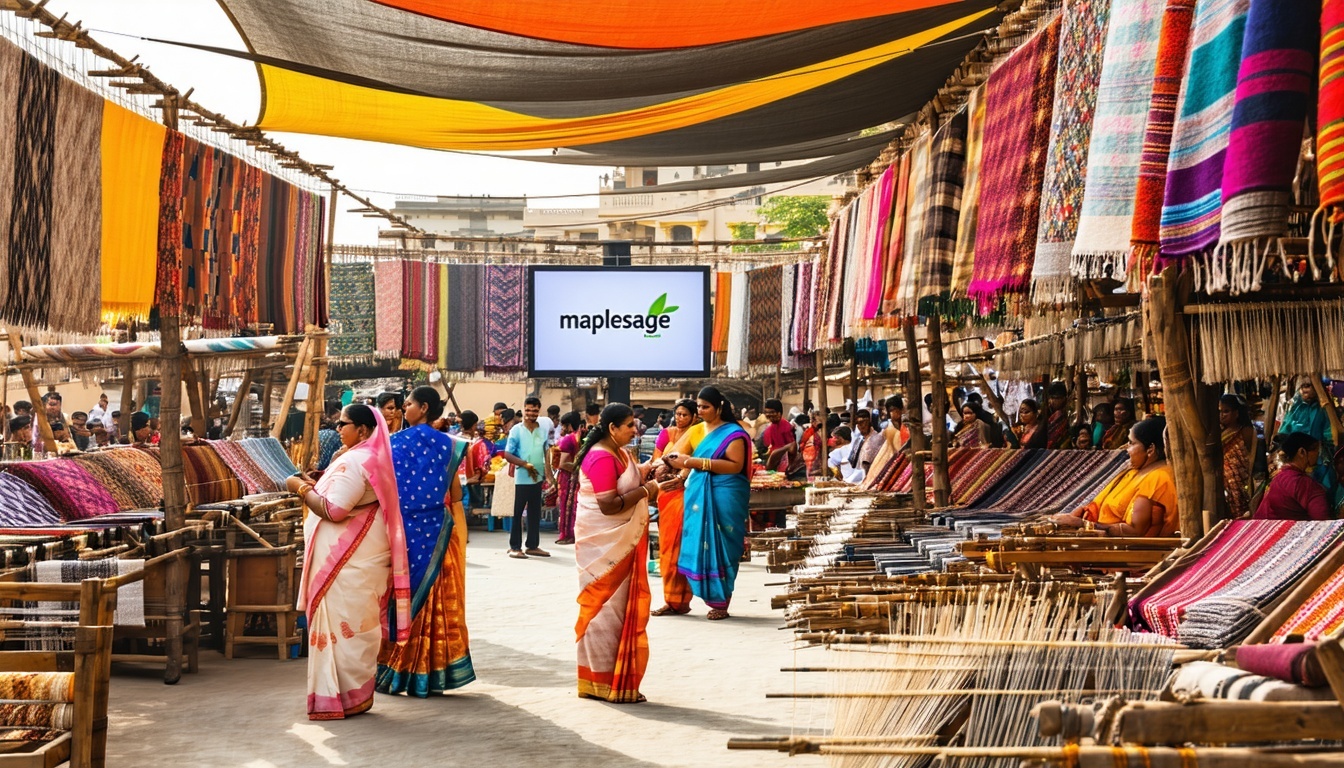
India's Bold EV Policy Aims to Transform Manufacturing & Sustainability

More than a year after its initial announcement in March 2024, India's landmark electric vehicle (EV) policy is set to shift into high gear as the government begins accepting applications this month, June 2025. The "Scheme to Promote Manufacturing of Electric Passenger Cars in India (SPMEPCI)" aims to position India as a global EV manufacturing hub, attracting significant foreign investment—a development underscored by recent reports, including from Bloomberg on its initiative to lure global giants—and substantially accelerating the nation's transition to sustainable transportation.
The policy offers a steep reduction in import duties on EVs, from as high as 110% down to 15%, for manufacturers committing to a minimum investment of $500 million (approximately ₹4,150 crore) in local production facilities within three years. Operational guidelines for the scheme were officially issued on June 2, 2025, paving the way for global players to participate. Importantly, the policy includes stringent eligibility criteria, such as significant global revenue thresholds and substantial bank guarantees, to ensure that only serious, capable manufacturers with a long-term commitment to India can leverage these benefits.
This initiative is being lauded not just as an industrial strategy but as a significant step towards climate action. Every EV manufactured and sold under this policy will contribute to reducing fossil fuel dependency and curbing carbon emissions, aligning with India's climate goals, including its net-zero ambitions by 2070. The EV market in India is projected for exponential growth, and this policy is a key enabler for preventing millions of tons of CO2 emissions annually.
Key Tenets of the Policy Driving Sustainability and Innovation:
- Local Manufacturing and Value Addition: A cornerstone of the policy is the mandate for 25% domestic value addition (DVA) within three years, rising to 50% within five years. This will foster a robust local supply chain, reduce logistical emissions, and promote a circular economy by encouraging sustainable manufacturing ecosystems within India.
- Attracting Global Expertise: The policy is designed to draw in global EV giants. While initial expectations included Tesla, recent statements from the Ministry of Heavy Industries suggest Tesla may currently be focused on importing vehicles, while other manufacturers like Mercedes-Benz, Volkswagen, Hyundai, and Kia have reportedly shown interest in local manufacturing under this scheme.
- Boosting Charging Infrastructure: Recognizing the critical role of a supporting ecosystem, the policy allows up to 5% of the committed capital to be invested in developing charging infrastructure, an integral part of a sustainable EV landscape. (The guidelines also now clarify that investments in R&D can be part of the committed investment).
- Limited Imports as a Precursor: Manufacturers can import up to 8,000 EVs annually at the reduced duty rate for five years, allowing them to test the market while establishing their local production capabilities. The total duty foregone is capped at the investment made or ₹6,484 crore, whichever is lower.
- Green Job Creation: The influx of investment and the establishment of new manufacturing plants are expected to generate millions of direct and indirect green jobs, bolstering the Indian economy while promoting environmental stewardship.
This policy indeed reflects an innovative approach, leveraging bold fiscal measures to leapfrog traditional development pathways in the automotive sector. By incentivizing local production and sustainable practices, India is not only aiming to transform its domestic transportation landscape but also to contribute significantly to global sustainability efforts, potentially becoming a key player in the future of clean mobility.
This forward-thinking approach and ambitious vision for a sustainable future deeply resonate with us at MapleSage, reflecting our own core values and mission:
- A Shared Commitment to Sustainability: India's EV policy, with its emphasis on reducing emissions and fostering sustainable manufacturing, mirrors MapleSage's unwavering dedication to Sustainability. Our eco-friendly practices in apparel manufacturing, such as our water-filtration systems, are our contribution to a healthier planet, aligning with the systemic change this policy promotes. This national drive towards a circular economy is the kind of thinking that propels our innovation in sustainable fashion.
- Innovation as Our North Star: The Innovation inherent in this policy—to accelerate green development and attract cutting-edge technology—is a principle we live by at MapleSage. We consistently blend technology and fashion to redefine denim apparel and marketing, pushing for a more sustainable industry, inspired by such bold, transformative initiatives.
- The Entrepreneurial Spirit for Impact: The decisive action and visionary scope of the EV policy exemplify an Entrepreneurial Spirit. This mirrors MapleSage's journey and our founder's drive, evolving from Michael H Jeans to K Denim, and now as MapleSage, always pushing boundaries to create meaningful, sustainable impact.
- Global Vision, Local Action: India’s aspiration to become a global EV hub, creating positive ripple effects worldwide, aligns perfectly with MapleSage’s Global Vision. As we expand our B2B and D2C presence across the United States and India, we are committed to making a positive impact on a larger scale, fostering a global community dedicated to sustainable practices.
Our rich Heritage in apparel manufacturing provides the foundation for these sustainable innovations, and our Digital Excellence allows us to share this vision and connect with a conscious global community. We believe that national policies like India's EV scheme, coupled with dedicated business efforts, pave the way for a truly sustainable and prosperous future for all.
#SustainableTransport #ClimateAction #GreenInnovation #CircularEconomy #SustainableManufacturing #GlobalSustainability #MapleSage #SustainableFashion #EVPolicy #MakeInIndia #Innovation #GlobalImpact #SeriousAboutSustainability


